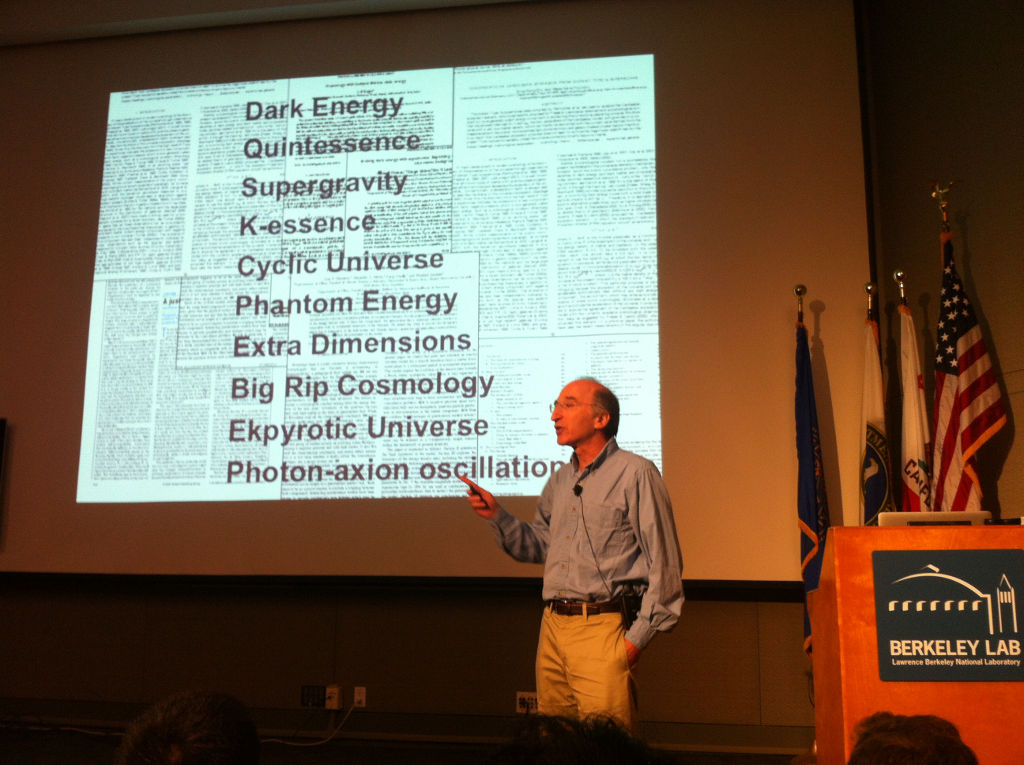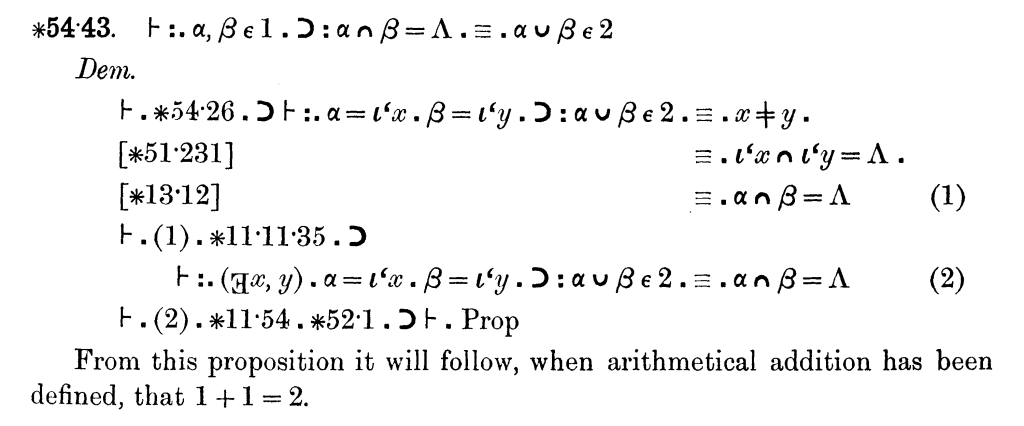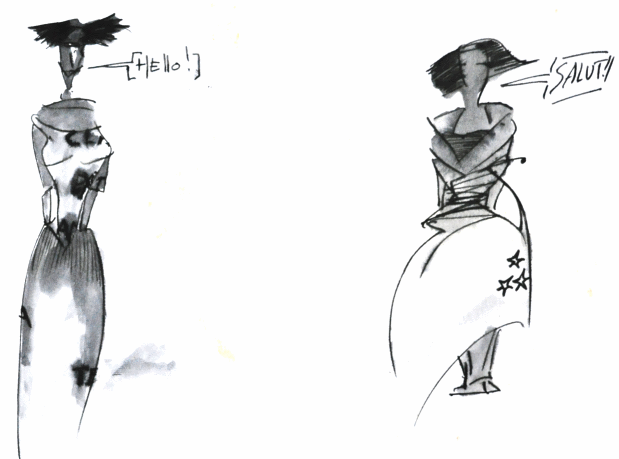Recent events in the scienfic community – I’m thinking of the detection of primordial B-mode signal in the CMB polarization by BICEP2 (probable), the discovery of Higgs Boson (Nobel-prized) and of the faster-than-light neutrinos (ruled out as an experimental error) – invite us to draw a line between what is reasonable science and what is not.
Subluminal
Slower than the speed of light, but not by much
Category Archives: epistemology
La deraisonnable efficacité des mathématiques
Hi peeps !
Dear English-speaking readers :
this post is about a French translation of Hamming’s
“The Unreasonable Effectiveness of Mathematics“
You can readily enjoy this text in English language!
C’est ainsi qu’il y a des odeurs que les chiens peuvent sentir et que nous ne pouvons sentir, des sons que les chiens peuvent entendre et que nous ne pouvons entendre, et encore des couleurs que nous nous ne pouvons voir et de saveurs dont nous ne pouvons nous délecter.Des lors pourquoi, compte tenu de la façon dont nos cerveaux sont câblés, la remarque “Peut-être y a-t-il des pensées que nous ne pouvons pas concevoir” vous surprendrait-elle ? L’évolution, jusqu’à présent, pourrait nous avoir empêché de penser suivant certaines directions ; il se pourrait qu’il y ait des pensées impensables.
Enjoy !
MOOCs are a hoax
…said Dev Patnaik at Uncharted, and I believe he is probably right.
Big institutions (elite schools) have no idea how to deal with PR, so MOOCs is a good way to increase their influence : it matters for the teachers only.Continue reading
Hook theory
I want to talk today about Hooktheory, a website/ebook that two of my colleagues at CXRO Chris and Ryan have founded and are currently developing.
They gave me the chance to visit the Berkeley Skydeck, a startup incubator where they share space with other innovative companies on the top floor of the Chase building, in Berkeley– a great view !
Variations sur les droits de l’homme et du citoyen
En ligne avec le prédent post, je voulais vous faire part d’un élément étrange des droits de l’homme.
En lisant “I have a dream” de Martin Luther King Jr, il fait référence a l’élément suivant :we hold these truths to be self-evident that all men are created equal
qui est un extrait fameux de la constitution americaine.
Tentant de traduire cela en francais, j’ai comme eu l’impression qu’il manquait un mot…La relativité du faux
english readers : this post is a translation of I. Asimov’s essay “The relativity of wrong”, which can be found here.
Continuons dans la lancée :A couple of months in the laboratory can save a couple of hours in the library – Frank H. Westheimer
et présentons aujourd’hui la traduction du texte de Isaac Asimov, paru dans le Skeptical Inquirer durant l’automne 89. Il est disponible en version html.
(Pour compléter, je vous invite à lire “The Unreasonnable effectiveness of mathematics” de R. Hamming (en anglais; je n’ai pas encore trouvé la force de la traduire)
La relativité du faux
Par Isaac Asimov
The Skeptical Inquirer, vol. 14, No. 1, pp. 35-44, Automne 1989
traduction par Antoine Wojdyla
L’autre jour m’est parvenue une lettre. Elle était écrite à la main de façon grossière et difficile à lire par conséquent. Mais j’ai tout de même essayé de la déchiffrer, juste au cas où il y aurait écrit quelque chose d’important. Dans la première phrase, celui qui m’écrivait me disait qu’il avait fait des études de littérature, mais qu’il avait ressenti le besoin de m’enseigner les science (je soupirai, car je ne connaissais que très peu de littéraires suffisamment armés pour m’apprendre des choses scientifiques; mais je suis tout à fait conscient de l’immense étendue de mon ignorance, et je suis prêt à en apprendre autant que je peux de tout le monde, de sorte que je décidai de poursuivre ma lecture.)
Continue readingPerceptive hash
Continuing with metrics…
Everybody can easily recognize a tune, a famous painting or the face of a friend. Not so for a computer, who must first digitize the information, and operate on this dataset to find similarities. Back in the beginning of computer era, people though that it would be easy to recognize characters or voice, but technology had hard time with these issues. OCR is still perfectible, while voice recognition is still not common (things are getting better, but Siri is still fallible) Continue readingWelcome to the metrics
Everything that can be measured can be managed – Peter Drucker

Because measuring allows to make decision, by empowering evaluation and the comparison between elements, and thus to make optimal choices and perform improvements. But measuring something is not always easy. Continue reading
Toi et tes recherches
English readers : this post is about a French translation of R. Hamming’s talk
‘You and your research’ I’ve made.
You can already enjoy the text in your own language!
Lorsque l’on est célèbre, il est difficile de travailler sur de petits problèmes. C’est ce que pourtant fit Shannon. Après avoir fondé théorie de l’information, comment réitérer un tel succès? Les grands scientifiques font souvent cette erreur. Ils n’arrivent pas à se contenter de planter les petits glands qui ensuite font de beaux et grands chênes. Ils s’attaquent tout de suite aux gros morceaux. Et ce n’est pas la façon dont les choses se font. C’est donc une autre raison pour laquelle une reconnaissance précoce finit par vous stériliser. Je vais même vous donner ma citation préférée.
L’Institute for Advanced Study à Princeton, a, à mon avis, ruiné plus de bons scientifiques que n’importe quelle autre institution, à en juger par la différence entre ce que ces scientifiques ont fait avant leur arrivée et ce qu’ils ont fait ensuite. Non pas qu’ils ne sont pas qu’ils s’en sortaient mal, mais s’ils étaient géniaux avant d’arriver, ils n’étaient que simplement bons après.
Bonne lecture !
Faster than light !
No shame !
That’s what Nature said to those Prometheuses who wanted to steal the neutrinos from the realm of light (via).
No shame, because they put themselves at risk, claiming that the centenary rule that nothing can go faster than light might not be so unbreakable, while keeping their calm at all time.
- “point 5 past light !”
The best is their allegations re-opened the debate on what the speed of light really is the limit of.
Even though I’m not a specialist in special relativity, I was pleased to hear the crazy theories like this one :The speed of light is like a barrier. You cannot cross it, but you can be already on the other side, where the neutrinos might be.
Photons are exactly on the wall : they cannot go any slower or faster.(as heard on the radio).
I liked this picture because it relates to two (mis?)conception that I have.






